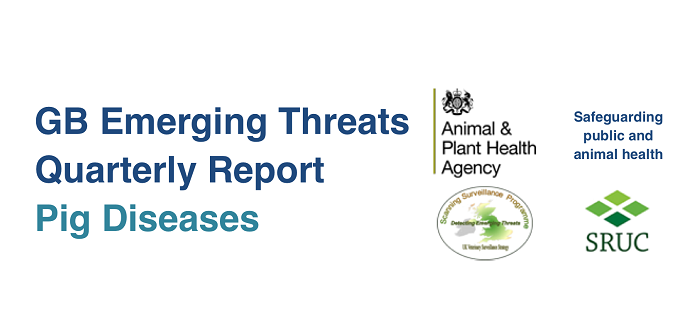Evidence of an upward trend in disease in UK pigs due to Escherichia coli (E.coli) and a significant rise in African Swine Fever (ASF) cases in wild boar in Eastern Europe are two of the highlighted items in the latest quarterly report on emerging disease threats.
Published by the Animal & Plant Health Agency (APHA) and the Veterinary Services division of Scotland’s Rural College (SRUC), the report covers pig disease developments from April to June this year.
For E.coli, the report reveals that the diagnostic rate for the quarter was the highest it’s been since Q3, 2004, registering 11.3% of diagnosable submissions.
The number of actual incidents diagnosed in the last quarter was 17; 12 enteric disease, four oedema disease and one colisepticaemia. Post-weaned pigs were most commonly affected, especially between four and nine-weeks-old.
The reasons for this increased rate of diagnoses are not known but isolates are being provided to research projects at APHA Weybridge for characterisation of virulence genes and sequencing.
For ASF, the report shows a “significant increase” in wild boar cases in Latvia and Estonia, compared to Poland and Lithuania, leading to an increase in restriction zones and “highlighting the need for continuing and strengthening the range of control measures”.
Despite this, APHA and SRUC conclude that the risk of ASF being introduced into the UK is “still considered to be low”.




